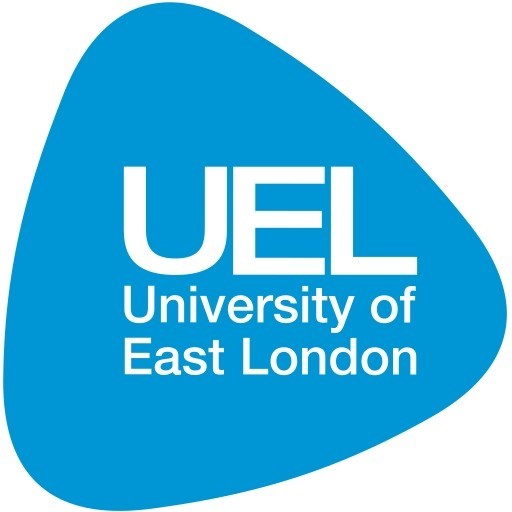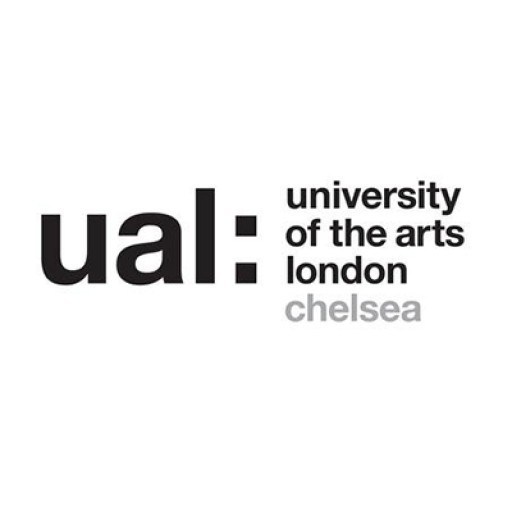Photos of university / #dundeeuni
The Bachelor of Fine Arts (BFA) in Digital Media, Drawing and Painting, Printmaking, and Sculpture at the University of Dundee offers a comprehensive and dynamic exploration of contemporary art practices. This programme is designed to foster creativity, technical skill, and critical thinking, providing students with the opportunity to develop their individual artistic voice across a variety of media. Throughout their studies, students engage with traditional and innovative techniques, ranging from classical drawing and painting to modern digital media, printmaking, and sculpture. The curriculum emphasizes experimentation, critical analysis, and the development of a strong conceptual foundation, encouraging students to challenge boundaries and explore new horizons in the visual arts.
Students are supported by experienced faculty who are active practitioners and researchers in their fields, offering mentorship and guidance tailored to each student's artistic journey. The programme includes regular studio practice, collaborative projects, and opportunities for public exhibitions, enabling students to present their work to diverse audiences and build professional networks. The facilities at the University of Dundee are equipped with state-of-the-art studios, digital labs, printmaking workshops, and sculpture spaces, ensuring students have access to the tools necessary for innovative art creation.
Throughout the programme, students are encouraged to reflect critically on their work and the cultural, social, and technological contexts that influence contemporary art. The curriculum also integrates opportunities for internships, residencies, and industry engagement, preparing graduates for careers in the arts, including gallery work, curation, art therapy, and further postgraduate study. By the end of the course, students will have developed a robust portfolio showcasing their diverse skills and unique artistic perspective, positioning them well for a successful career in the creative industries or further academic pursuits. The BFA programme at Dundee aims to cultivate versatile, thoughtful, and innovative artists ready to contribute meaningfully to the evolving landscape of contemporary art.
Our Fine Art programme at the University of Dundee offers a comprehensive exploration of creative practice across multiple disciplines, including Digital Media, Drawing and Painting, Printmaking, and Sculpture. Designed to foster artistic experimentation, technical skill, and conceptual development, the course provides students with the opportunity to develop a distinctive artistic voice while gaining a solid foundation in traditional and contemporary art practices. Throughout the programme, students engage in a dynamic curriculum that combines practical studio work, theoretical research, and critical analysis, encouraging an interdisciplinary approach that reflects the diverse nature of the contemporary art world.
The Digital Media pathway explores the integration of technology and digital tools in contemporary art creation, emphasizing innovative approaches to visual storytelling, digital installation, and multimedia art. The Drawing and Painting modules focus on developing technical mastery, observational skills, and personal expression through traditional and experimental methods. Students interested in Printmaking can delve into various processes including etching, lithography, and screen printing, fostering an understanding of both technical skills and historical contexts. Sculpture modules encourage the exploration of form, space, and material, allowing students to work with a wide range of media such as metal, wood, clay, and mixed media, promoting tactile and conceptual investigation.
Throughout the programme, students benefit from access to well-equipped studios, workshops, and digital labs, supported by experienced staff who are active practitioners in their fields. The curriculum is designed to challenge students intellectually and creatively, preparing them for diverse careers within the arts sector, including studio practice, gallery work, curation, and arts administration. Opportunities for exhibitions, collaborative projects, and engagement with professional artists and consulates are integral to the experience, providing real-world context and industry exposure.
In addition to developing advanced practical skills, students are encouraged to develop a reflective practice, critically assess their own work and that of others, and situate their practice within contemporary debates and historical developments in art. The final year culminates in a major solo project or exhibition, demonstrating the student's growth and readiness to contribute to the wider art community. Graduates of the programme are well-equipped to pursue postgraduate study or establish careers as professional artists, designers, educators, or arts professionals, equipped with both creative confidence and a robust understanding of the artistic landscape.
Program requirements for the Fine Art (Digital Media, Drawing and Painting, Printmaking, Sculpture) at the University of Dundee typically include a combination of academic qualifications, portfolio submissions, and personal statements. Applicants usually need to demonstrate a strong interest and prior experience in their chosen specialization within Fine Art. A minimum of Higher or equivalent qualifications such as A-levels or International Baccalaureate is expected, with preferred grades that reflect academic competence. Portfolio submissions are a crucial part of the application process; they should showcase recent work that highlights creativity, technical skills, and experimental approaches relevant to the applicant's chosen pathway, whether it be Digital Media, Drawing and Painting, Printmaking, or Sculpture. The portfolio is assessed to ensure that applicants have a solid foundation in visual arts and exhibit potential for advanced study. Additionally, applicants may be required to submit a personal statement outlining their artistic motivations, influences, and aspirations within the field of Fine Art. Some pathways may also require an interview or additional documentation to evaluate commitment and suitability for the programme. English language proficiency is necessary for non-native speakers, often demonstrated through tests such as IELTS or TOEFL, with minimum score requirements specified by the university. The program values diversity in artistic practice and encourages applicants to present a broad range of work that encompasses conceptual development, technical proficiency, and innovative approaches. Prospective students should also demonstrate awareness of contemporary art practices and related cultural contexts, which might be discussed further during interviews or in written statements. The course may have specific requirements for certain specializations; for example, Digital Media applicants might need to show evidence of digital skills, while Sculpture applicants could be asked to provide photographs of three-dimensional work. Overall, the program aims to admit students who are passionate, motivated, and capable of developing a unique artistic voice through rigorous practice and critical investigation.
The University of Dundee offers various financial support options for students enrolled in its Fine Art programs, including Digital Media, Drawing and Painting, Printmaking, and Sculpture. Prospective and current students can explore a range of funding opportunities such as scholarships, bursaries, and student loans. Scholarships are available based on academic merit and artistic talent, with specific awards for students demonstrating exceptional creativity and commitment in their chosen discipline. The university also provides information about external funding sources, including government grants and independent arts funding bodies, which may support students in their studies and projects.
Students are encouraged to apply early to secure funding and should consult the university’s dedicated financial aid office for detailed advice and application guidance. The university’s website outlines eligibility criteria, application procedures, and deadlines for various financial support programs. In addition to scholarships, students may access bursaries designed to assist with living expenses, which are often awarded on the basis of financial need. The UK government student loan system also provides options for eligible students to finance their tuition fees and maintenance costs.
The university promotes financial planning and provides resources to help students budget effectively during their studies. Part-time work opportunities within the university or in the local community offer additional means of income, helping students to manage costs associated with their artistic practice and living expenses. International students are advised to check specific visa regulations regarding work and funding options.
The total cost of attendance varies depending on the student's domicile, living arrangements, and personal expenses, but students can expect to benefit from the university’s comprehensive support framework designed to make arts education accessible. Furthermore, the university occasionally offers project grants and residencies to support student-led creative initiatives, offering both financial and professional development opportunities.
Overall, the University of Dundee is committed to supporting its diverse student body through a combination of internal scholarships, government funding, external grants, and employment opportunities, ensuring students can focus on their creative development without undue financial burden.
The University of Dundee offers comprehensive degree programs in the various disciplines of Fine Art, including Digital Media, Drawing and Painting, Printmaking, and Sculpture. These programmes are designed to provide students with a rich combination of practical skills, theoretical knowledge, and critical understanding essential for a successful career in the arts. Students engaging in these courses benefit from state-of-the-art facilities, including specialized workshops, digital studios, printmaking labs, and sculpture yards, which enable hands-on learning and experimentation. The curriculum encourages creative exploration, individual expression, and the development of a personal artistic voice, supported by experienced faculty members who are active practitioners and scholars in their fields. Throughout the course, students are encouraged to engage critically with contemporary art practices and issues, fostering an awareness of the cultural, social, and technological contexts of their work. The university promotes an interdisciplinary approach, allowing students to cross traditional boundaries between disciplines and innovative methods. Assessment methods include studio-based projects, written assignments, exhibitions, and portfolios, reflecting the diverse nature of professional art practice. The programme also supports opportunities for placements, collaborations, and participation in national and international exhibitions, helping students build a professional network and gain practical experience. Graduates of these programmes have gone on to successful careers as practicing artists, curators, educators, and arts administrators, contributing to cultural life locally, nationally, and internationally. The university’s vibrant arts community and connections with galleries and arts organizations further enhance the learning environment. Students are encouraged to explore contemporary issues through their work, developing a critical and reflective approach that prepares them for evolving artistic landscapes. The programmes typically span three years of full-time study, with options for part-time study and postgraduate routes for those wishing to continue their academic journey. Overall, the Fine Art programs at the University of Dundee aim to cultivate innovative, reflective, and socially engaged artists equipped with the skills and confidence to thrive in the diverse world of contemporary art.










